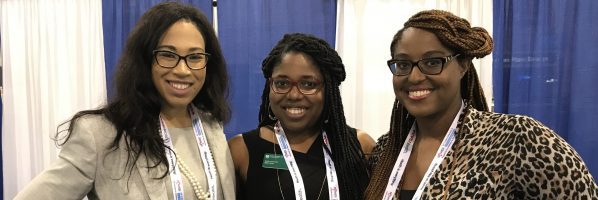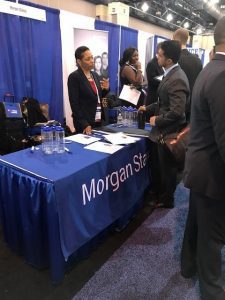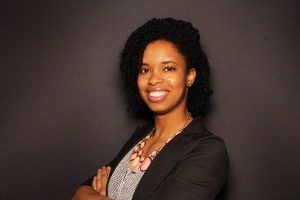The Secret To Finding An Affordable Washington DC MBA

Washington DC may be a top city for students pursuing their MBAs, but the city’s high cost of living could prove prohibitive for many young Mstudents. Growing rent prices over the past ten years have led DC to be one of the least affordable of the major U.S. metropolitan areas.
Of course, MBA students looking to apply their education to governmental agencies won’t find a better place to do so than in the nation’s capital. And though contending with high rent prices may be unavoidable, many business schools offer students a number of ways to keep the cost of their degree at a minimum.
From scholarships to grants and student work opportunities, business schools in Washington DC ensure that low-income applicants can have equal access to the high quality education their program’s provide. Below are just a few of the opportunities provided to assist low-income applicants at Washington DC MBA programs.
Finding An Affordable Washington DC MBA
McDonough School of Business – Georgetown University
Over $1.5 million in aid is available to MBA applicants through merit based scholarships at Georgetown University’s McDonough School of Business. All students are eligible for these grants, but it is advised to apply for the program early to best position yourself for consideration. International students in need of additional funding may also apply for external scholarships and private loans specifically for international students. The university has compiled a list of common lenders that students may want to consider here.
McDonough also provides scholarship opportunities through the Consortium, a group whose goal it is to reduce the under-representation of blacks, Native Americans, and Hispanic students in business education. As a member school, a number of scholarships are also available at McDonough for students admitted as part of the Consortium.
University of Maryland R.H. Smith School of Business
Roughly 85 percent of MBA students at UMD Smith receive merit based awards to help fund their education. Between scholarships, fellowships need-based awards and assistantship opportunities, students have a number of opportunities to reduce their tuition and keep their MBA affordable. Awards such as the Dean’s Award of Smith award provide two years and one-year of full scholarship and fees. Students may also find additional opportunities for scholarships through the university’s organizational partnerships, such as the Forté Foundation or management Leaders for Tomorrow.
YOU MAY ALSO LIKE: Georgetown McDonough Offers New FinTech Elective
George Mason University School of Business
The George Mason University School of Business provides one of the best values in education, demonstrated through the high success rate of alumni and the fact that Mason alumni have the lowest student loan default rates in Virginia.
Mason offers a number of financial aid opportunities through grants, scholarships, work-study employment, and loans. Every year, the school offers millions of dollars to incoming students, including fellowships for graduate students. The Office of Student Financial Aid is dedicated to assisting each student in finding the financial assistance that is needed for their degree.
George Washington University School of Business
The George Washington University School of Business offers a number of different ways for students to reduce the cost of their MBA degree. Each year, graduate students may apply to a number of different fellowships, available through the university as well as private foundations and agencies. At the Office of Graduate Student Assistantships & Fellowships, students can search through these numerous opportunities and see which scholarships best fit their qualifications.
GWU also offers Financial Aid based on the need of each students. Eligible applicants can apply for need-based aid by filing the Free Application for Federal Student Aid (FAFSA).
Howard University School of Business
MBA students at the Howard University School of Business may be eligible both for federal student aid, based on need, and a variety of scholarships, which are given based on merit and other factors. Scholarships range, and may cover up to full-tuition, while others provide partial funding. Howard MBA students may also pursue loans for tuition through the ACCESS Loan Program, Alternative Education Loans, or other private loan services.
Kogod School of Business – American University
The Kogod School of Business at American University ensures that its high quality education can be affordable for all. Roughly 80 percent of all students receive financial aid of some kind, with almost $85 million awarded just to the undergraduate population. Kogod offers both need-based aid and merit scholarships. Students may contact the Graduate Admission Office at Kogod for more information on the scholarships available to them, but all applicants who demonstrate excellent academic credentials will be considered for these honors—a separate application process is not needed.
How Chicago Business Schools are Helping Low-Income Students

Business school doesn’t come cheap, which often means that prospective students who could benefit the most from the lucrative career opportunities that come with an MBA either don’t end up at top tier programs or don’t end up applying at all.
The flip side is that MBA programs now more than ever desperately need more diverse perspectives in their classrooms—yet it seems the same ol’ folks end up in these slots every year. Many in academia are woefully ill equipped to meet the challenges of a more diverse and inclusive business landscape but there are a handful of MBA programs that have begun to catch up and take strides to make business educations more accessible to qualified low-income applicants.
The Chicago metro just so happens to be packed to the gills with high-ranking MBAs that take initiative to help promising candidates. Let’s take a deeper dive into four of our favorite Chicago MBA programs that have historically lent a hand to low-income students.
Northwestern’s Kellogg School of Management
Situated just above the city limits on Chicago’s North Shore (see: John Hughes movies), the Kellogg School of Management is among the nation’s most coveted MBA programs—and among the most generous too. Kellogg offers a variety of different scholarships based on merit or financial need for newly admitted students and rising second-year students, as well as external scholarship resources through the Office of Fellowships for Graduate Students.
YOU MAY ALSO LIKE: Tech Grads Surge in New Northwestern Kellogg Employment Report
Director of Admissions Melissa Rapp explains that Kellogg understands that funding a business school education can be challenging. “To help students meet this challenge, a variety of merit scholarships are offered, including diversity scholarships, such as James P. Gorter Scholarship which is awarded to under-represented backgrounds in the Two-Year MBA or MMM program, and academic, professional or special interest scholarships, such as the Health Enterprise Management Scholarship which is awarded to an outstanding student interested in pursuing a career in healthcare.”
UIC’s Liautaud Graduate School of Business
UIC Business provides opportunities to empower graduate students with a dynamic, proven, business education, and an immersive city experience that enhances both quality of life and career opportunities. Many UIC Business students have financial need and the school makes a point to acknowledge its dedicated staff of advisors who help every student navigate the financial aid process. Alanna O’Connor, Assistant Dean for Student Recruitment and Sid Balachandran, Program Director, explains:
“As a state institution we strive to maintain costs for students and are committed to providing a world-class business education at a campus nationally recognized for its diversity. We offer our competitive programming at a more affordable value than some of our peer schools. The affordability of our program is an important part of providing a high return on investment. Multiple tuition waivers, scholarships, assistantships—teaching or research—are also are available for students who qualify.”
Notre Dame’s Mendoza College of Business
The Mendoza College of Business walks the walk when it comes to a socially engaged, community-centered vision of business. Part of that mission entails actively courting and supporting stellar applicants who might demonstrate need, particularly women through the Forte fellows program.
“As a sponsor school for the Forte Foundation, Notre Dame is committed to launching women into successful business careers. Forte Fellows are recognized for their academic aptitude, leadership, and future potential,” the school notes. “Forte Fellows are granted special access to the Forte community, including leadership conference access, mentoring and career development opportunities, and network development.”
It also means that students with deep interests in corporate social responsibility might do well to apply to Mendoza. According to Mendoza, it awards more than 65 percent of one-year MBA students merit-based fellowships based on “academic performance, prior work experience, GMAT or GRE scores, leadership potential, letters of recommendation, and each applicant’s personal statement.”
Lake Forest Graduate School of Management
In its commitment to “attract and develop outstanding leaders who change lives,” Lake Forest has a number of MBA-centric fellowships and scholarships:
- The President’s Scholarship supports “proven leaders who have achieved measurable results, demonstrate a high level of self-awareness and adaptability, and are committed to developing their leadership potential.”
- The Emerging Leaders scholarship supports students who “demonstrate exceptional leadership potential and show the ability and desire to deliver meaningful results, think innovatively, and gain a heightened level of self-awareness.”
- The $3,510-7,000 Leadership Scholarship supports students who demonstrate financial need and “strong leadership potential, verbal and written communications skills, intellectual ability, and motivation.”
- The Yomine Scholarship supports students “are employed in a manufacturing position” who demonstrate financial need
- The $3,510 Tuition Assistance Grant supports “candidates who are not eligible to receive tuition assistance from their employer.”
- The Gariano Scholarship supports “women with an undergraduate nursing degree” who demonstrate financial need.
Loyola’s Quinlan School of Business
The Loyola Quinlan School of Business offers two merit-based scholarships to MBA students: the Dean’s Merit Scholarship, which typically covers 1-2 courses, awards “stellar academic performance” and the $1,000-10,000 Graduate Business Student Scholarship, which supports students “who have proven academic success and demonstrated financial need.”
Top MBA Programs Gain Ground for Gender Parity

The Forté Foundation today released its annual women’s enrollment report for full-time MBA programs at its member schools, which include many of the top business schools in the United States and abroad. This fall, women’s MBA enrollment climbed to a global average of 37.4 percent, up 4 percent over 2013 figures, when the global average was 33.4 percent women.
In fact, the last five years of enrollment data at Forté member schools reveal steady gains in the percentage of women. For U.S. schools, women’s enrollment reached 37.8 percent this fall, up from 37.1 percent in 2016, and 34 percent in 2013. And for schools outside the United States, the gains have been even greater. In fall 2017, non-U.S. Forté member schools enrolled 36 percent women, up more than 3 percent year over year (from 32.8 percent in 2016) and almost five percent since fall 2013 (from 31.1 percent).
“I’m always heartened anytime I see a 1 percent trend overall,” Forté Executive Director Elissa Sangster told Clear Admit. “Year by year, it’s pretty significant for this group of schools to steadily have that same number increase—because it’s a lot of work to get more women into the pipeline and to matriculate those women,” she continued. “But this year, in particular, seeing those other schools outside the U.S. go up 3.4 percent in one year was very surprising.”
Two Schools Reach 45 Percent Women, Highest on Record
In fact, there were many signs beyond these overall statistics that show continuing progress toward gender parity among MBA programs. For one, 17 Forté member schools this fall enrolled 40 percent or more women—as compared to just two schools that reached this milestone in 2013. A total of 26 schools enrolled more than 35 percent women, more than twice as many as in 2013 (12 schools). Best yet, for the first time ever, two schools reached 45 percent or more women enrolled—the University of Pennsylvania’s Wharton School and George Washington University School of Business. And three more schools—two in the United States and one in the United Kingdom—were close behind at 44 percent.
“The 1 percent [overall year-over-year gain] may seem small, but we’re seeing 17 out of 50 schools hit over the 40 percent mark, and that’s huge,” said Sangster. “To start seeing schools trend that direction makes a big impact because it’s a hard thing to obtain for any school at this point.”
Not only that, the progress demonstrates that gender parity is attainable, Sangster stressed.
“Although women’s enrollment in business school is a slow and steady growth story, at this rate we could reach an average of 40 percent women’s enrollment in top business schools in less than five years and 50 percent by 2030,” she said in a Forté press release. “Why is this significant? There is evidence that an MBA can provide both career advancement and significant pay gains for women, giving them greater economic mobility. And efforts to support women to pursue an MBA can contribute to a more diverse leadership pipeline at companies.”
The Forté Foundation is a non-profit consortium of top business schools, corporations, and the Graduate Management Admission Council, and its efforts to move the needle toward gender parity in the MBA and business more generally are widespread. Launched in 2001 after the results of a landmark research study, Women and the MBA: Gateway to Opportunity, Forté now has 51 member schools: 39 in the United States, four in Canada, and eight in Europe. It also has numerous initiatives to help close the gender gap.
“Our college efforts are very robust and have been growing over the last five years. We are connecting with women about their career options and bringing the MBA into the conversation early,” explained Sangster. “It’s important for women in their university years to really understand what type of opportunities they have, to have access to role models, and to know the landscape of what’s to come. I think Forté can be a real guide in that. We know that having those conversations with young women is critical.”
A few of Forté’s initiatives include
- The annual Forté MBA Women’s Leadership Conference, which brings together hundreds of women MBA students and top companies each year to help attendees explore career paths, meet recruiters and mentors, and hear from influential businesswomen;
- The Forté College to Business Leadership Conference, a similar event designed to introduce undergraduate women to career opportunities and summer internships at top companies;
- The “Rising Star” pilot initiative, launched in September 2015, which helps undergraduate women become well-informed about their many career options, and
- MBALaunch, a hands-on, 10-month program that provides guidance, resources, and ongoing feedback about the business school application process through monthly webinars, peer group meetings, and feedback from experienced advisors.
“MBALaunch allows us to give women unprecedented access to business schools, alumnae, admissions representatives, and admissions experts—and also to give them a cohort of like-minded women who can support them and encourage them through the business school application process,” Sangster said. In the past, many women went through the application process alone, she continued. “MBALaunch allows us to present the best version of those women candidates to business schools. That’s what makes a critical difference in terms of admission into your stretch business school.”
The Forté Foundation also awards a variety of scholarships through its Forté Fellows program. The program has exploded from just 33 inaugural scholarships awarded in 2003 to 1,300 scholarships awarded to the incoming Class of 2017 and another 1,100 scholarships awarded to second-year students in the Class of 2016. Overall, since 2003, Forté schools have awarded a staggering $142 million in scholarships to Forté Fellows.
It Takes an Entire Community Effort
To augment Forté’s initiatives, top business schools can continue to make progress on their own by keeping a steady eye on gender parity and getting the entire school involved in the process, said Sangster.
“The schools that are doing a great job at consistently keeping their numbers high have an entire community effort focused on the goal of gender parity,” Sangster said. “It’s not just the admissions team reviewing applications and making decisions. It’s the students enrolled in the school being actively involved in recruiting and matriculating those students. It’s the alums making phone calls and participating in local coffees or teas to talk about their own story and to reduce concerns about the investment that women will be making.”
“It’s not just one small group of people; it’s a team effort, a community effort,” she continued. “The schools that are maintaining their numbers and seeing a steady climb have a full-court press.”
So which schools are leading the way? The following 17 Forté member business schools have 40 percent or higher women’s enrollment:
- Alliance Manchester Business School
- Columbia Business School
- Dartmouth College (Tuck School of Business)
- George Washington University School of Business
- Harvard Business School
- Imperial College Business School
- Massachusetts Institute of Technology (Sloan School of Management)
- Northwestern University (Kellogg School of Management)
- University of California Berkeley (Haas School of Business)
- The University of Chicago (Booth School of Business)
- University of Michigan (Ross School of Business)
- University of Oxford (Saïd Business School)
- University of Pennsylvania (Wharton)
- The University of Texas at Austin (McCombs School of Business)
- University of Toronto (Rotman School of Management)
- Yale School of Management
- York University (Schulich School of Business
And the following nine schools have 35 percent or greater women’s enrollment:
- Arizona State University (W. P. Carey School of Business)
- HEC-Paris
- London Business School
- New York University (Stern School of Business)
- University of California – Los Angeles (Anderson School of Management)
- University of Cambridge (Judge Business School)
- University of Illinois Urbana–Champaign (Gies College of Business)
- University of Virginia (Darden School of Business)
- Washington University in St. Louis (Olin Business School)
To access the full Forté report, click here.
This article has been edited and republished with permissions from Clear Admit.
The Top 5 Reasons Diversity MBA Conferences Should Be on Your Recruiting Calendar

Pictured above: Tuck second-year MBA students Bianca Goins, Sadé Lawrence, and Jodine Gordon.
More than 10,000 MBA students, business school representatives, recruiters, and business executives filled the Pennsylvania Convention Center in Philadelphia late last month for one of the largest career conferences serving minority professionals. The conference has been around since 1970, but for the first time this year the National Black MBA Association (NBMBAA) and Prospanica, the association of Hispanic professionals, joined forces to present it. The result was an incredible opportunity for attendees to network with companies and each other, take advantage of career development programming, and interview for and secure job offers from hundreds of companies spanning multiple industries.
Cornell’s S.C. Johnson Graduate School of Management had a group of approximately 55 students attend, a mix of first-year and second-year students, according to Cynthia Saunders-Cheatham, Executive Director of Johnson’s Career Management Center.
“It was double what we have had in recent years, and perhaps the largest attendance we ever had for an MBA diversity conference,” she said. “Having a joint NBMBAA/Prospanica conference, in addition to the Philadelphia location that was driving distance away [from Ithaca, NY, where Johnson is located], helped to drive attendance.” The connections that students made while there have already resulted in multiple job offers, she added.
While securing a job or internship is a primary reason many MBA students choose to attend the National Black/Prospanica conference and others like it, that’s just one of many potential benefits events like this offer. Given that this most recent conference was right here in our hometown of Philadelphia, we went to check things out for ourselves. Through conversations with attendees, school representatives, and recruiters, we’ve compiled the following list of reasons why this year’s crop of applicants should be sure to add diversity MBA conferences to their recruiting calendar next summer and fall.
1. Unparalleled Recruiter Access—Including Many That Don’t Come to Campus
The Career Expo, which took place on the last two days of the five-day National Black/Prospanica conference, filled a cavernous hall in the Convention Center and included booths from close to 300 companies spanning dozens of industries. Among them were coveted post-MBA tech employers like Google and Amazon, consulting industry leaders including Bain & Company and Accenture, and financial services firms such as BlackRock, Bank of America, and Morgan Stanley. There was a continuous gaggle at the Google booth, and one of its MBA internship recruiters, Tanya Choudhury, had to resort to wearing a sign by the second day explaining that she’d lost her voice.
Big pharma and healthcare were also well represented, with booths attended by recruiting representatives from drug maker AstraZeneca to medical products and equipment company Zimmer Biomet and many in between. Leading consumer packaged goods (CPG) firms including PepsiCo, General Mills, and Proctor & Gamble were also there, as were oil and gas giants like BP, Chevron, and Exxon.

Morgan Stanley was one of almost 300 exibitors in the conference’s packed Career Expo.
But there were also plenty of organizations that are perhaps less top of mind as potential MBA recruiters—the Central Intelligence Agency, the U.S. Department of State, Teach for America, and USAID, for example—who were just as eager to share how highly they value the MBA skillset. Dozens of leading business schools also had booths, largely to provide support and serve as gathering places for students who were attending, but also with an eye out for promising diverse talent. For example, Roberto Martinez, a Senior Talent Acquisition Consultant for Dartmouth College—home to the Tuck School of Business—was eagerly distributing glossy handouts touting the school’s varied career opportunities, commitment to diverse hiring practices, and excellent benefits. “We’re here not only to support students but also to hire more diverse staff to campus,” he said.
For Tuck second-year MBA student Bianca Goins, the breadth of companies at the expo was a big part of the draw. “I wanted a diverse group of companies to look at in a single spot,” she said. “There are so many companies here, and as second-year you can really come and pick and choose the experiences you want to have.”
Tiffany Anderson, a second-year student at Emory’s Goizueta Business School, was also impressed by the sheer number of companies present. A self-proclaimed conference veteran, she also attended National Black last year, as well as conferences presented by the Forté Foundation, the Consortium for Graduate Study in Management, Management Leadership for Tomorrow, and JumpStart. “Out of all the diversity conferences, I would certainly say this is the flagship,” she said. “Wow! There are A LOT of companies here,” she recalled thinking to herself as she walked in. More so than last year, before National Black and Prospanica teamed up, she added.
“I have seen the most people—students from many different schools and recruiters from many different functional areas of interest,” she continued. “It seems to be the most diverse in terms of attendees, degree of programming, and companies in attendance. For the majority of people, this is going to be one of the best to attend.” Anderson estimates that there were probably 30 or so Goizueta students there, a mix of first- and second-years.
2. Multiple Touch Points and Opportunities for Face Time
For some students, certainly, the primary purpose in attending the conference is to land a job. Second-year IU Kelley School of Business MBA student Henrique Barbosa, a native of Brazil pursuing travel hospitality, had a simple answer when asked why he was there: “To get a job!” He acknowledged that most of the firms he was interested in only conduct first-round interviews at the conference followed by second-round interviews on site, which lessened the likelihood of his leaving with an offer in hand. “But it would be great if it happened,” he said.
But several other students were less interested in job or internship offers—or even in early round interviews. For Jodine Gordon (Tuck ’18), the biggest factor in her decision to attend was hearing success stories from Tuck grads whose higher-level touch points with conference recruiters later helped them secure offers. “I have a couple companies on my list, but really I just want to meet as many people as possible so they can get to know me and I can get face time,” she said.
Sadé Lawrence, also a second-year student at Tuck, was likewise attracted by the opportunity to get in front of recruiters in person. “For a lot of opportunities you might be interested in, you start online at a website, applying through data base,” she said. “But coming here they now have a face with your name, and there are all kinds of organic connections that can happen,” she added. “It’s kind of amazing that you are able to build connections with people even at such a big conference, but you are. You make contacts and get lots of face time—so much more so than you can blindly through a website,” she continued. “What I have heard more of is people have an interaction with a recruiter here that leads to an interview later—here is more about entering the pipeline.”
Tuck’s Goins has taken the opportunity to network with recruiters who don’t make it to Tuck’s campus, but also those who do. “With every interaction, you are getting a more nuanced understanding of the company and can take that information and use it in subsequent interactions.”
3. Valuable Chances to Network with Peers
Goizueta’s Anderson interned in operations at Google over the summer—an opportunity she got through another diversity conference—and has been offered a full-time position on the tech giant’s Mountain View campus after she graduates. Despite having that full-time offer in hand, attending the conference still made lots of sense.
Kelley School second-year student Luis Vilchez Kupres, a native of Peru, also converted his summer internship—in supply chain operations at Cummins—into a full-time offer. So his reasons for attending the conference were not to get a job. ”I am here to support fellow Kelley first- and second-years and network a little more,” he said. He also gets to reconvene with students from other schools he met at last year’s Prospanica conference. “Often, you connect with somebody and they will help you connect with someone else,” he said. “Networking definitely helps—even among other MBA students.”

Tiffany Anderson, Goizueta MBA ’18, a diversity MBA conference veteran
For the Google-bound Anderson, the value of peer networking can’t be stressed enough. Being able to connect with students from other schools is the part she finds most enjoyable—but it’s also strategic. “When candidates are selecting a school they like to look at the size of the network they are going to get—and that’s great,” she said. “But the way I see it, I don’t have to be at Stanford or Wharton because I have friends at Stanford and Wharton. So in a way that’s kind of my network, too.”
“You have that domino effect,” she continued. If she’s trying to connect with someone at a company where she doesn’t have a contact or her classmates don’t have contacts, she can reach out to a friend at another school to see if there’s someone in their network. “Some might say, ‘Well, they’re a peer, they’re not an employer, they’re not going to get me a job.’ But there is so much more benefit to expanding your network. I don’t think everyone understands that.”
Of course, peer networking can be a two-way street. “My motivation to expand my network comes from wanting to help others as well,” Anderson said. “When you are part of these diversity networks, one of the great things is you are going to have a friend who says, ‘Do you know someone who can help me with this?’ And I can say, ‘Well, I met someone at a conference who does that very thing and I’m happy to put y’all in touch.’”
How the Chicago Booth School of Business Helps Low-Income Applicants

U.S. News and World Report lists University of Chicago’s Booth School of Business among its top three best business schools in the country. But with the school’s estimated tuition (including living expenses) for the 2017-18 year at $103,759, Booth may not sound like a practical option for a number promising candidates. Though the $126,937 average base salary of graduates is definite proof of return on investment, for many, the cost of tuition may make the idea of earning a Booth MBA seem impossible. Fortunately, the myriad loan and scholarship options available at Booth may make a Booth MBA more feasible for students from all economic backgrounds.
Those of you craving a challenging higher education experience at one of the most prestigious institutions in the U.S. can breathe a sigh of relief. Below, we’ve laid out some of the resources available to help low-income applicants fund their MBA education at Booth School of Business.
Scholarships and Fellowships
Though Booth does not offer need-based financial aid, there are a plethora of merit-based scholarships and fellowships available to promising students. According to the school’s website, awardees are chosen based on the quality of their interview, their academic merit, their prospective concentration, competitiveness, career goals, and life experiences.
Specialized scholarships are available to minority students, veterans, and students with outstanding scholastic achievements. There are also industry-specific opportunities, such as the Canfield Private Equity Fellowship, which is specifically geared toward students with a background in private equity or investment banking, and even includes an internship at a private equity firm.
Take a look at some of the more prominent Booth scholarships available:
Chicago Booth Merit-Based Award
- This general scholarship is awarded to select students at the time of admissions based off, according to the school, “who have excelled in academics, work experience, and service to the community.”
George J. Stigler Fellowship
- This awarded is granted to students who excel in fields such as law, economics, and business.
Forté Foundation Fellowship
- This full-time MBA awarded is gifted to students through the forward-thinking Forté Foundation every year for students that “exhibited exemplary academic, team, community, and/or creative leadership, and are committed to advancing the interests of women in business.”
Distinguished Fellowship
- Students granted this high-ranking fellowship receive a “stipend and mentorship from Harry L. Davis, the Roger L. and Rachel M. Goetz Distinguished Service Professor of Creative Management.” The fellowship covers a student’s entire tuition.
David W. Fox Scholarship
- Another full-tuition award, the David W. Fox Scholarship is gifted to students that have previously or are currently serving in U.S. military. The school notes, “Students must demonstrate outstanding leadership, academic and extracurricular achievements, and a commitment to advancing the interests of those having served in the military.”
You can learn more about Booth’s scholarship opportunities here.
Loans
Booth students who are U.S. citizens or permanent U.S. residents can apply for a variety of federal or private student loans. Students looking for federal loans can choose a Direct Unsubsidized Loan or a Direct Grad PLUS Loan. To qualify for the Direct Unsubsidized Loan, students must be enrolled in at least 200 units each quarter. The maximum amount students can receive with this loan is $20,500 per year. Students who require more than $20,500 per year can apply for the Direct Grad PLUS Loan, which has a much higher cut-off. With this loan, students can receive up to the total cost of attendance (minus any other outside financial support). Students who opt for private, credit-based loans can also borrow up to the total cost of attendance, not including separate sources of financial assistance.
International students also have the option of leaning on loans to help finance their MBA. Booth provides loan options for international students without U.S. cosigners, as these students may not be eligible for private loan options. Those with U.S. cosigners, however, have a wide selection of private loan opportunities available to them.
Lehigh Business Heading To Forté Foundation Forums

From mid-August and into the fall, the Forté MBA Forums will be held across 12 cities in the U.S., Canada and UK. Representatives from dozens of highly-reputable business schools will be in attendance for the 12-city event, including the Lehigh University College of Business and Economics.
Michael Tarantino, Director of Recruitment and Admissions, will be attending the August 14 event in Washington DC as well as the August 29 Forté MBA Forum in New York City. There, prospective MBA applicants will have a one-on-one chance to learn about the school and its advantageous MBA programs. Lehigh currently offers a full-time One Year MBA and the award-winning part-time Flex MBA, along with multiple dual MBA opportunities.
Forte has offered a more richly detailed account of the upcoming events:
”The format for these events is highly interactive. Each event will consist of two panels, the Alumnae Panel and the Admissions Panel. The Alumnae Panel will include a moderator and four to five panelists from various industries and career stages. The Admissions Panel will include a moderator and three to four senior admissions officers to discuss the MBA application process. Women will have the opportunity to network with school representatives during the entire program.”
On the event, former attendee Madeline Keulen notes, “The Forté Forum event provided the exact insights we were looking for. Most of the schools I was interested in had representatives at the event who could speak to the specifics of their programs, and panels of alumni enhanced the richness of the experience through their personal stories of why they chose to pursue an MBA. I have a much better sense of where I’d fit best.”
The August 14 event will be held at the Renaissance DC Downtown Hotel at 999 9th Street NW, Washington, DC 20001 and the August 29 forum will be held at New York I, Goldman, Sachs & Co., 200 West Street, New York, NY 10282.
For more information on the events and the many other upcoming Forté MBA Forums, visit the official Forté website.
Check out more of Lehigh University’s upcoming events here.
